On March 21, 2026 from 9:00 am to 3:00 pm, our campuses in Görlitz and Zittau will open their doors to you! Find out more about our degree programs, the university and campus life - on site. You can find more information about the Open University Day here.
The challenges of a sustainable energy supply require in-depth specialist knowledge and innovative solutions. In the dual Diplom degree course in energy and environmental engineering, you will acquire comprehensive engineering skills to master these future tasks. With two specialized majors - Renewable Energies and Energy Efficiency or Applied Radiation Technology - the course offers you a unique depth of expertise. The KIA model (cooperative studies with integrated training) combines academic excellence with valuable practical experience and leads to two degrees: the Diplom-Ingenieur (FH) and a recognized professional qualification.
This demanding degree program provides you with advanced knowledge in these key areas:
With the increasing share of renewable energies and the decentralization of energy supply, the requirements for energy systems are changing fundamentally. In this degree course, you will acquire the in-depth knowledge to develop, dimension and operate components and systems for sustainable energy systems. Depending on your chosen specialization, you will either specialize in renewable energy technologies and energy efficiency or in the applications of radiation technology in industry, science and medicine. This qualification will make you a sought-after expert for the complex technical challenges of the energy transition.
| Faculty: | Mechanical Engineering |
| Location: | Zittau |
| Degree: | Diplom-Ingenieur/-in (FH) |
| Standard period of study: | 10 semesters |
| ECTS points: | 240 |
| Teaching language: | German |
| Enrolment for: | Winter semester |
| Application: 1.5. to 30.09. | Start of studies: October |
| Admission restriction: | open admission (without NC) Details |
| No pre-study internship | to the student advisory service |
| Accreditation status: | accredited |
Your studies follow a well thought-out structure that combines a broad engineering foundation with specialized technical expertise. In the first phase, you will acquire basic knowledge in mathematics, mechanics, thermodynamics and materials engineering. You will alternate between university and training company so that you can apply theoretical knowledge directly in practice and also obtain your first vocational qualification after around two and a half years.
After this basic phase, you will make an important decision for your further specialization and choose between the specializations Renewable Energies and Energy Efficiency or Applied Radiation Technology. As your studies progress, modules such as heat exchangers, fluid mechanics and energy and resource management will broaden your understanding of energy technology. An internship semester gives you the opportunity to apply your knowledge in an industrial company. Depending on your chosen specialization, you will then specialize in topics such as energy system technology and renewable energy technology or radiation technology and the handling of radioactive materials. Complex internships allow you to gain in-depth practical experience in your area of specialization. In the advanced semesters, you will also study challenging subjects such as energy process engineering and efficient energy systems. Finally, your Diplom thesis will demonstrate your ability to solve complex energy technology problems independently at a high engineering level.
The semesters marked in light green (2.1 / 2.2 / 3.1 / 3.2) are part-time semesters. Here, the 2nd and 3rd semesters from the Diplom curriculum are each stretched over 2 semesters. You complete these in a 4-week rhythm at alternating learning locations (university/company). You will complete this study section with the 1st professional qualification (Chamber of Industry and Commerce examination). This results in a total of 10 semesters.
After the 3rd semester, you choose a specialization: "Applied Radiation Technology" or "Renewable Energies and Energy Efficiency".
Modules in the specialization Applied Radiation Technology
Modules in the specialization Renewable Energies and Energy Efficiency
Modules in the Applied Radiation Technologyspecialization
Modules in the specialization Renewable Energies and Energy Efficiency
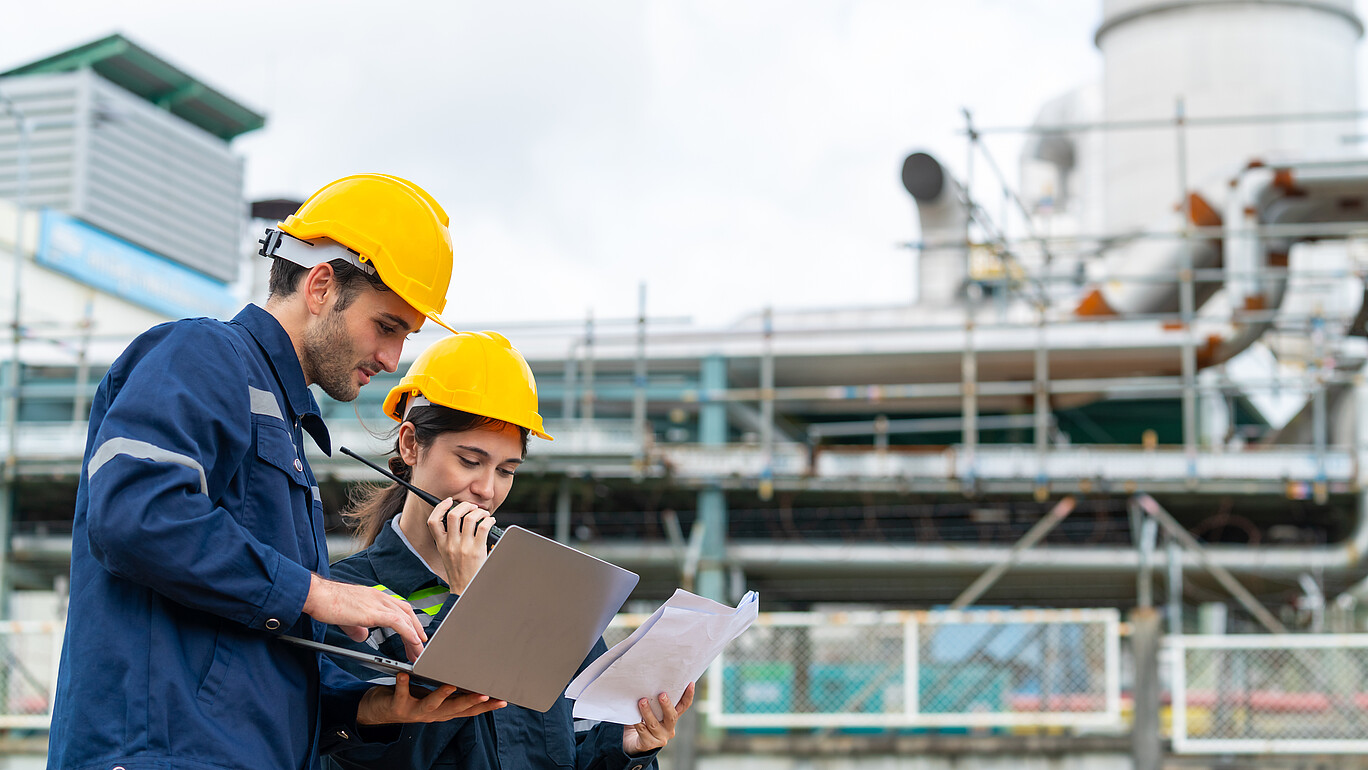
Energy system planning
You design and model complex energy systems, taking into account technical, economic and ecological aspects. You develop supply concepts for neighborhoods, industrial sites or regions and simulate their behavior. Your in-depth analytical skills and systemic thinking will enable you to design sustainable energy supply structures and create a basis for investment decisions.
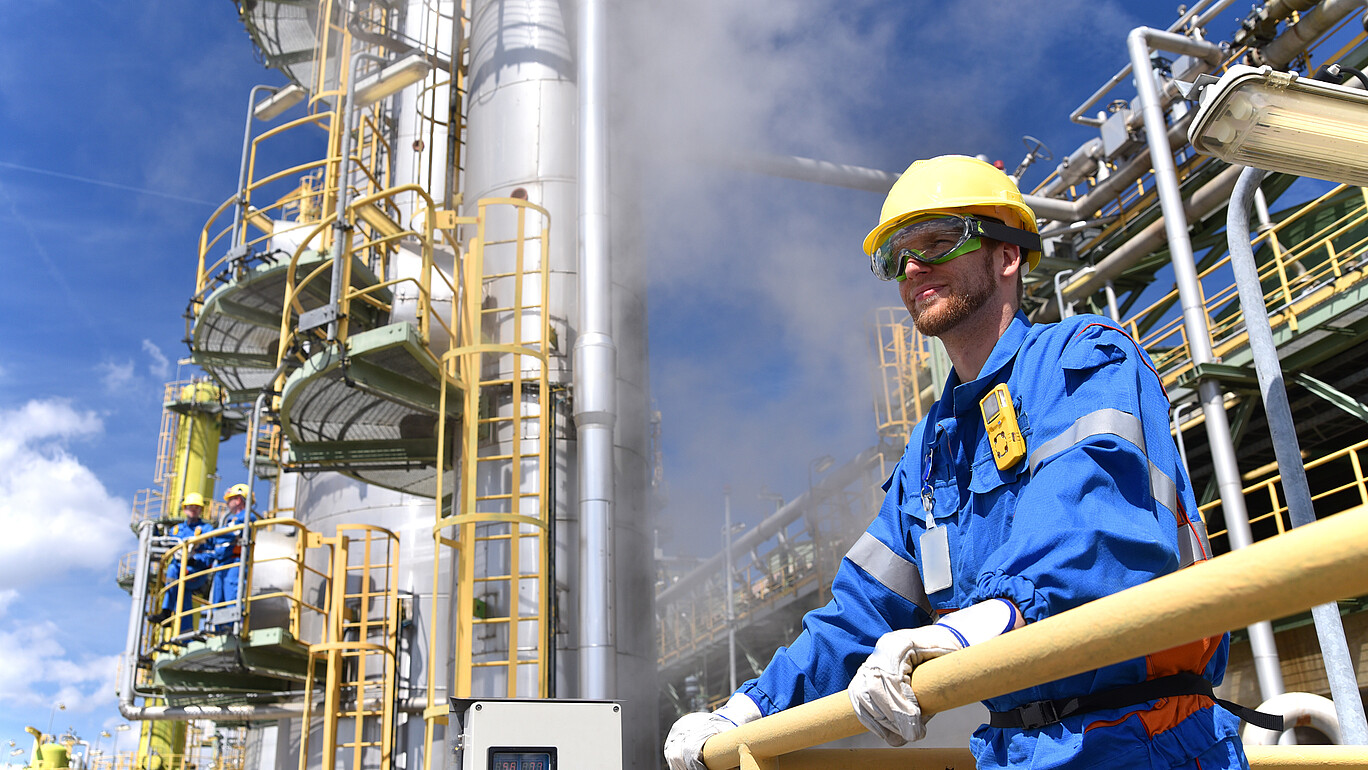
Power plant engineering
You will plan and optimize conventional and renewable energy generation plants. You will calculate thermodynamic cycle processes, dimension components and develop operating strategies for maximum efficiency. Your comprehensive understanding of thermal processes and plant technology will help you to modernize power plants and make them fit for the requirements of the energy transition.
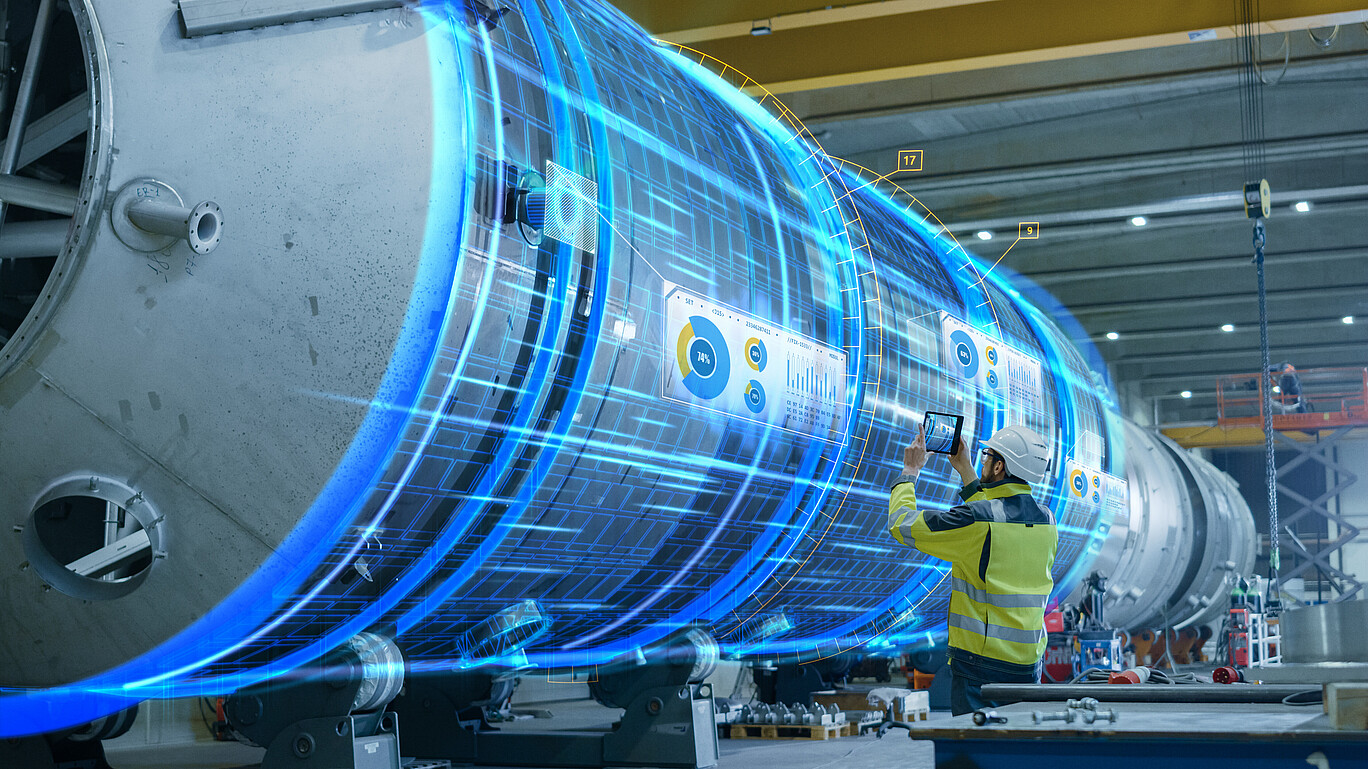
Research and development
You will work on the further development of energy technology components and systems in research institutions or industrial companies. You carry out systematic test series, analyze measurement results and derive new concepts from them. Your scientific approach and innovative spirit will help to increase the efficiency of energy technologies and find new solutions to the challenges of the energy transition.
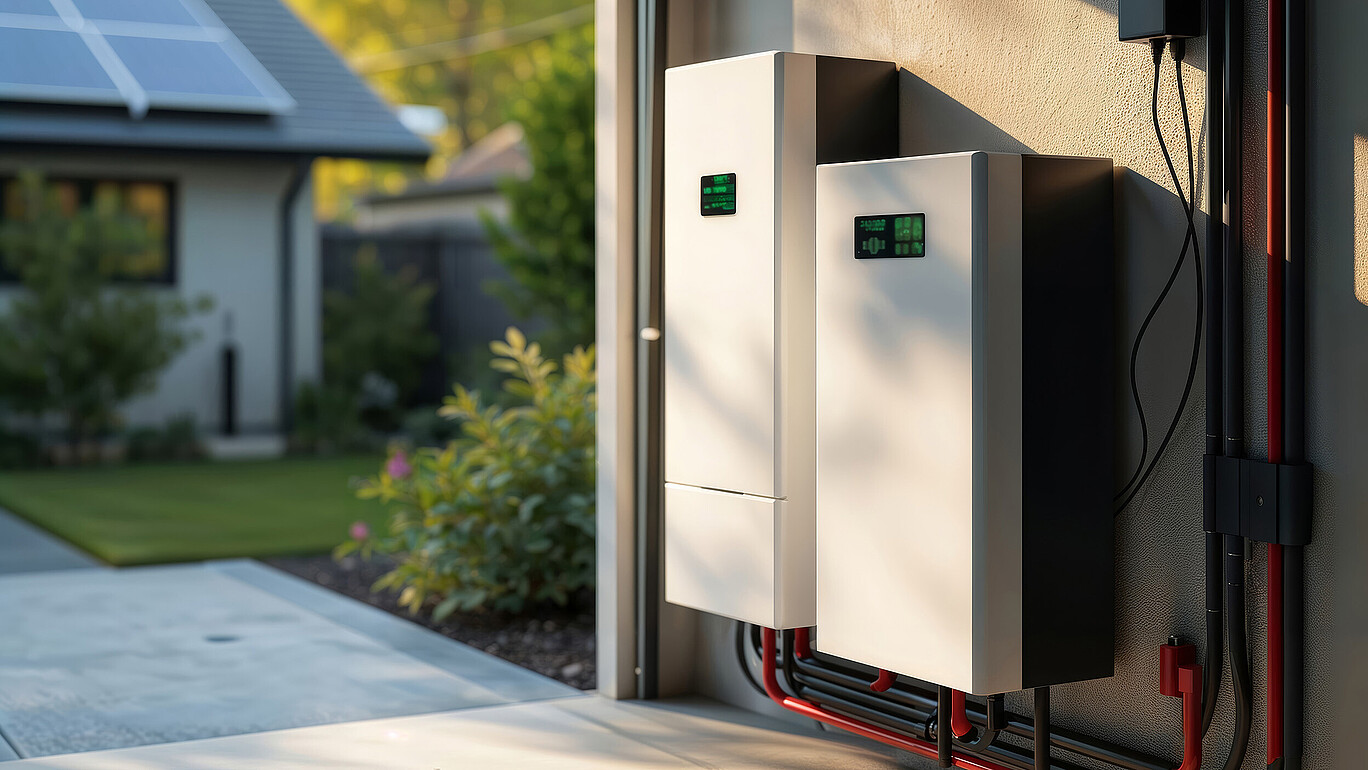
Energy storage technology
You develop and optimize technologies for storing electrical and thermal energy. You will design battery systems, hydrogen technologies or thermal storage systems and integrate them into existing energy systems. Your interdisciplinary knowledge in electrical engineering, thermodynamics and materials science will enable you to create key solutions to the challenge of fluctuating renewable energies.
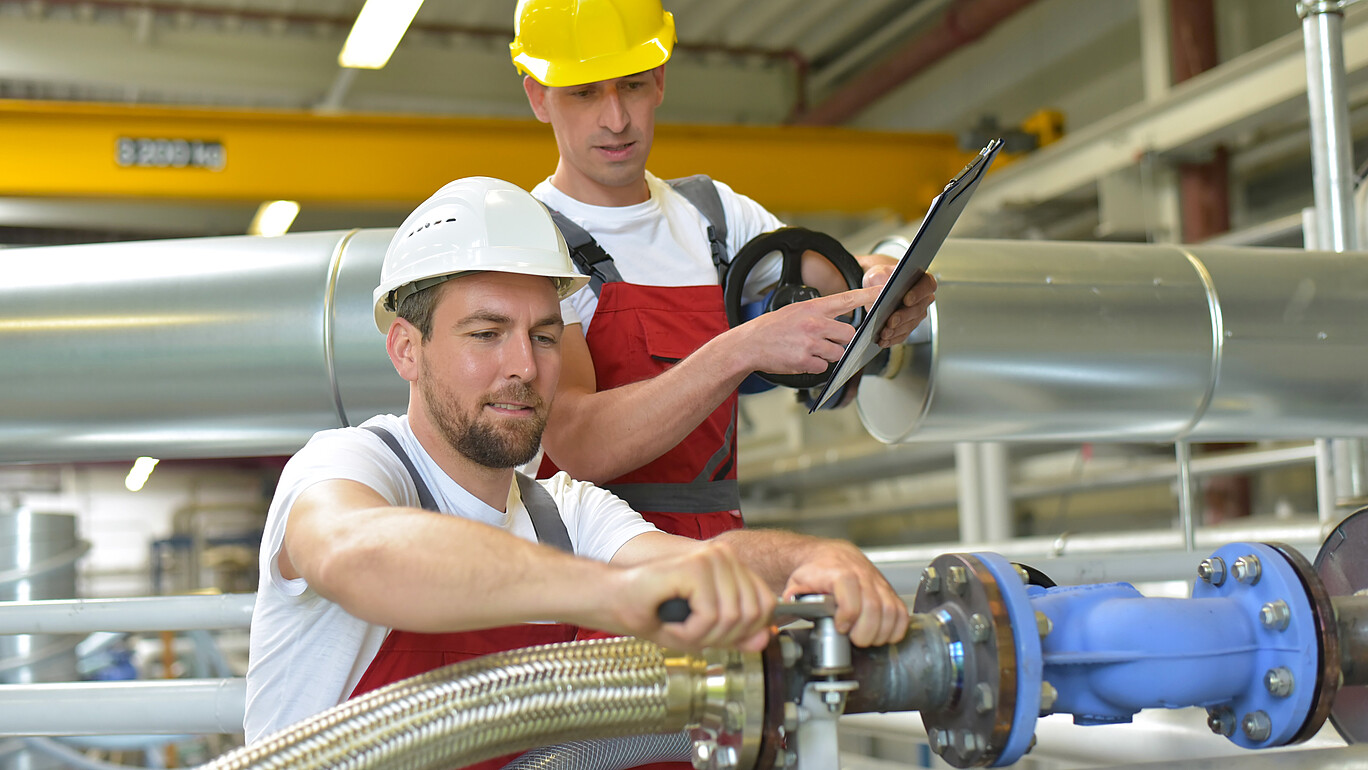
Plant planning and construction
You will manage challenging plant construction projects from conception to commissioning. You create detailed planning documents, coordinate trades and supervise the installation of complex energy systems. Your technical expertise and project management skills ensure that large-scale energy technology projects are completed on time, on budget and to the highest quality standards.
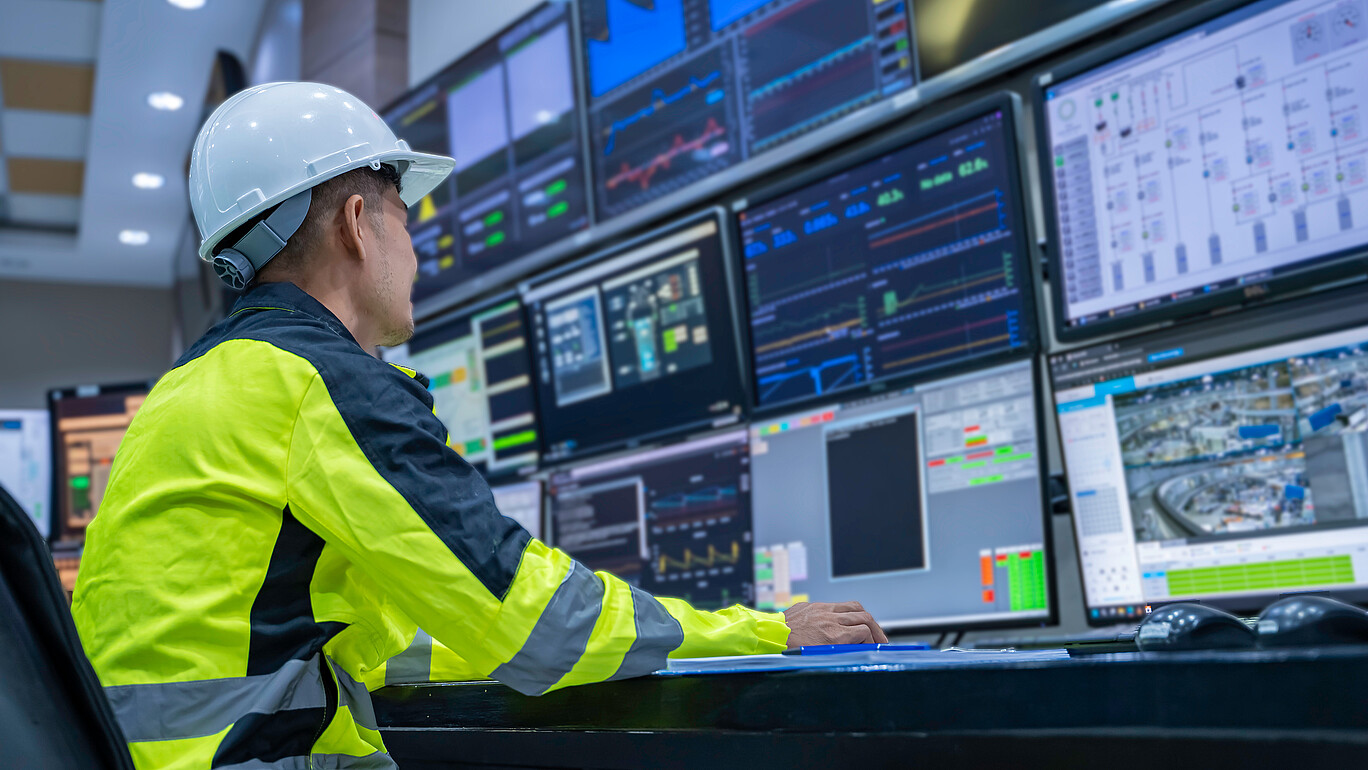
Radiation protection and radiation technology
You monitor and ensure the use of radiation technology applications in industry, medicine and research. You will develop safety concepts, carry out measurements and ensure compliance with legal requirements. Your specialized knowledge of radiation physics and radiation protection makes you a sought-after expert in this highly regulated and responsible field of activity.
KIA is a dual course of study leading to a degree in engineering (Diplom-Ingenieur (FH)) - with integrated vocational training (including IHK/HWK qualification).
It combines theory and practice very intensively, creates an early bond with the future company and is therefore recommended by the state government of the Free State of Saxony and expressly demanded by the companies.
Our future KIA students apply to a company cooperating with the university up to one year before the start of their studies, have the university entrance qualification, are interested in scientific problems and have the necessary mobility.
The companies conclude a cooperation agreement with the university and contracts with the applicants for practical vocational training (vocational training contract or internship contract) or - in the case of KIApro- a qualification contract.
After the degree of a training contract or internship contract with the company, you still have to register at the university with your university entrance qualification - this is possible from mid-May.
The degree course usually begins on September 1st with 4 weeks of basic practical vocational training in the company. Depending on the degree program, you will then complete one to three semesters at the university.
The study-free periods between the semesters are reserved for practical training in the company. Training at the company takes place during the basic course of study according to the study schedule (e.g. alternating between the company and the university every 4 weeks) and ends with an examination at the relevant chamber (IHK or HWK). Separate vocational school lessons are not provided. The theoretical knowledge required for the vocational training is taught through the scheduled lectures and additional "vocational specifics" teaching units at the university. During the practical training period, you are entitled to collectively agreed leave and receive a monthly salary from the company, which is based on the remuneration for apprentices.
After completing the vocational training, the remaining semesters are completed as full-time studies with part-time work (often with a study support contract from your company) and end with the desired degree of Diplom-Ingenieur-/in (FH).
We now also offer our student advisory service via WhatsApp. Just send us a message to: +49 173 2086748
Studying with us is different. Above all, better. Why? We have a family atmosphere. There are small study groups and the lecturers are always there for you. There is a close connection to practice in all degree courses. And finding affordable accommodation is no problem here.
There are many other reasons, such as university sports or the student representatives, clubs and societies. Campus life in Zittau and Görlitz, the wild east, is unique.
Our newsletter provides you with regular tips and information about studying. From application strategies to student finance, we keep you up to date on everything you need to know. Subscribe to our newsletter now and always be well informed! ♥